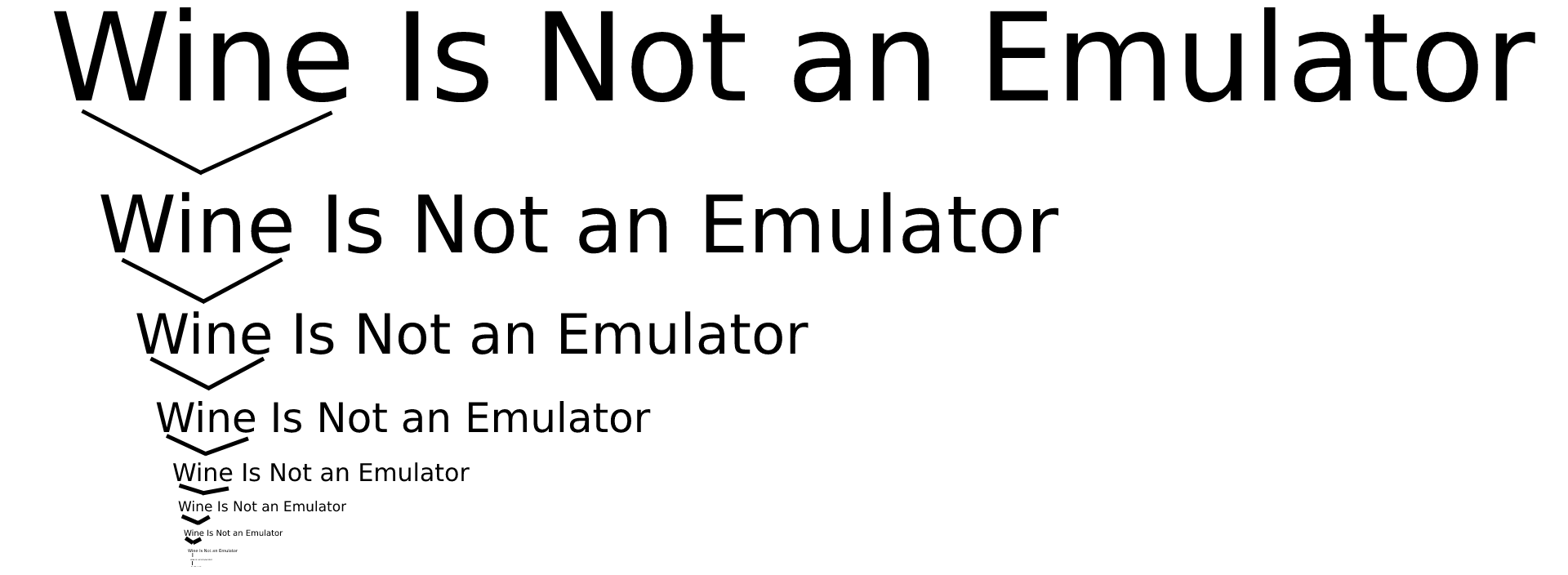this post was submitted on 06 Aug 2024
547 points (97.7% liked)
linuxmemes
22725 readers
1076 users here now
Hint: :q!
Sister communities:
Community rules (click to expand)
1. Follow the site-wide rules
- Instance-wide TOS: https://legal.lemmy.world/tos/
- Lemmy code of conduct: https://join-lemmy.org/docs/code_of_conduct.html
2. Be civil
- Understand the difference between a joke and an insult.
- Do not harrass or attack users for any reason. This includes using blanket terms, like "every user of thing".
- Don't get baited into back-and-forth insults. We are not animals.
- Leave remarks of "peasantry" to the PCMR community. If you dislike an OS/service/application, attack the thing you dislike, not the individuals who use it. Some people may not have a choice.
- Bigotry will not be tolerated.
- These rules are somewhat loosened when the subject is a public figure. Still, do not attack their person or incite harrassment.
3. Post Linux-related content
- Including Unix and BSD.
- Non-Linux content is acceptable as long as it makes a reference to Linux. For example, the poorly made mockery of
sudoin Windows. - No porn. Even if you watch it on a Linux machine.
4. No recent reposts
- Everybody uses Arch btw, can't quit Vim, <loves/tolerates/hates> systemd, and wants to interject for a moment. You can stop now.
5. 🇬🇧 Language/язык/Sprache
- This is primarily an English-speaking community. 🇬🇧🇦🇺🇺🇸
- Comments written in other languages are allowed.
- The substance of a post should be comprehensible for people who only speak English.
- Titles and post bodies written in other languages will be allowed, but only as long as the above rule is observed.
Please report posts and comments that break these rules!
Important: never execute code or follow advice that you don't understand or can't verify, especially here. The word of the day is credibility. This is a meme community -- even the most helpful comments might just be shitposts that can damage your system. Be aware, be smart, don't remove France.
founded 2 years ago
MODERATORS
you are viewing a single comment's thread
view the rest of the comments
view the rest of the comments

It kind of is though.
Not really. It is just translating the Windows system API calls into Linux system API calls. It's not emulating Windows, it's an entirely different implementation that doesn't necessarily match that of Microsoft's implementation. It had it own workarounds to make buggy code work.
You wouldn't call a Java Virtual Machine an emulator of another JVM either, they're just different implementations of the same specification.
Thing is, I do kind of think of a JVM as an emulator for a processor that doesn't exist.
WINE kind of blurs the line of a traditional emulator by having the executable run natively on the target machine's CPU, but everything it does in regards to dealing with the host OS, the display, disk access, etc, is emulated as far as I'm aware.
A theoretical PS4 or Xbox One emulator running on x86 hardware could be just as much of an emulator as WINE is.
Yes but an emulator emulates both the CPU and GPU of the consoles and in the case of PS4 even thought the CPU is x86 the biggest difference I can think of is the GPU drivers.
Maybe depending on how far you take it. A CPU instruction is different from hardware to hardware, but a function signature would stay the same no matter the underlying architecture. If we want to go through that logic then an interpreter can be thought of as a form of emulator.
I'd call a JVM an emulator. To the end user they're the same.